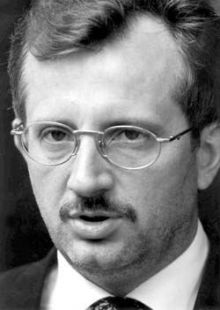Once when Helmut Kohl was giving lectures during the campaign to admit Poland to the European Union, he said that whenever he, as the German Chancellor, had any doubts regarding Germany’s position on some important European issues, he always consulted with the prime minister of Luxembourg and took his views into consideration. Even though the final decision could favour small countries, his argument was that Germany was big enough to succeed in any case. Therefore, it was vital for small countries not to feel excluded from the EU decision-making process.
I am not sure if Kohl’s words are 100 percent true, but I can confirm that many times in the history of the European Union the interests of small countries were juxtaposed to large ones. What is characteristic in the majority of cases is that the large countries did not abuse their power over their weaker partners. This is actually the core - a spirit of consensus that laid the foundations for building today’s European Union. Still, on many occasions there is a temptation to use the argument of force and not the force of argument.
Thus, there was nothing new last week in Brussels. The European Union is on the eve of great institutional reform, which will allow the Member States to face the challenges of the contemporary world as well as to function properly in the union of 27 and beyond. One of the aspects of the reform is the new distribution between Member States of seats in the European Parliament. Although the final decision will be decided at the European Council (where the governments make decisions), on Thursday parliament adopted a resolution on the issue in order to send a political signal to the EU decision makers. Naturally, the members representing large countries were inclined to favor solutions or mathematical formulas giving their countries an edge over others. At the end, however, a spirit of compromise and Kohl’s reasoning prevailed. Parliament is calling for sharing seats among others on the basis of the “regressive proportionality” principle, suggesting that the bigger the population of a member state, the higher the number of citizens each member of the European Parliament must represent and vice versa. In other words, the domination of large countries over small ones is considerably limited.
As one can imagine, a list of those who were not happy with the figures they would be allocated is not a short one, but this is exactly the nature of each compromise. The latter is enshrined in the functioning of the EU. Thus, we may be quite confident that it will also triumph in the EU Council, as it always eventually did in the past.
Marek Siwiec is the vice-president of the European Parliament.







